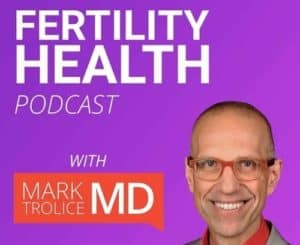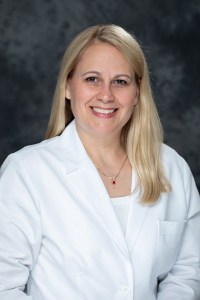 Pre-cancerous changes to the lining of the uterus do not get a lot of attention, but are a critical aspect of a woman’s fertility and overall gynecological health. Women, especially those who want to preserve their fertility, need to understand what the risks are for developing pre-cancerous cells and how they can mitigate those risks.
Pre-cancerous changes to the lining of the uterus do not get a lot of attention, but are a critical aspect of a woman’s fertility and overall gynecological health. Women, especially those who want to preserve their fertility, need to understand what the risks are for developing pre-cancerous cells and how they can mitigate those risks.
In this episode, Shelly Seward, M.D., FACOG, gynecologic oncologist at Women’s Care Florida, joins host Mark P. Trolice, M.D., to break down how pre-cancerous changes to the lining of the uterus come about and what patients can do to detect and treat it.
Tune in to discover:
- How uterus lining cells can become pre-cancerous
- Who may be at higher risk of developing pre-cancerous uterus lining cells
- How polycystic ovary syndrome (PCOS) may come into play
- What an endometrial biopsy is and when it may be needed to rule out cancer
- Treatment options to help you maintain your fertility
About Shelly Seward, MD, FACOG
 Dr. Seward is board certified in gynecologic oncology, and obstetrics and gynecology by the American Board of Obstetricians and Gynecologists. Her practice offers complete care for ovarian, uterine, cervical and vulvar cancer, as well as complicated benign gynecological issues. Dr. Seward performs all levels of surgery from minimally invasive preventative surgery to radical tumor resections. She administers chemotherapy, coordinates radiation therapy, and helps her patients manage side effects from treatment.
Dr. Seward is board certified in gynecologic oncology, and obstetrics and gynecology by the American Board of Obstetricians and Gynecologists. Her practice offers complete care for ovarian, uterine, cervical and vulvar cancer, as well as complicated benign gynecological issues. Dr. Seward performs all levels of surgery from minimally invasive preventative surgery to radical tumor resections. She administers chemotherapy, coordinates radiation therapy, and helps her patients manage side effects from treatment.
Dr. Seward is passionate about integrative medicine—combining complementary alternative medicine to traditional care—and clinical trials investigating new medications in the treatment of gynecologic cancer.
Dr. Seward earned a bachelor’s degree in microbiology with a minor in molecular genetics from Ohio State University. She received her medical degree from Eastern Virginia Medical School and returned to Ohio State to complete her obstetrics and gynecology residency. In addition, Dr. Seward earned a fellowship in gynecologic oncology from Wayne State University.
In her spare time, Dr. Seward enjoys spending time with her family, horseback riding, college football, water sports, and dining out.
About Mark P. Trolice, M.D.
Mark P. Trolice, M.D., FACOG, FACS, FACE is Director of Fertility CARE: The IVF Center in Winter Park, Florida and Associate Professor of Obstetrics & Gynecology (OB/GYN) at the University of Central Florida College of Medicine in Orlando responsible for the medical education of OB/GYN residents and medical students as well as Medical Endocrinology fellows. He is past President of the Florida Society of Reproductive Endocrinology & Infertility (REI) and past Division Director of REI at Winnie Palmer Hospital, part of Orlando Health.
He is double board certified in REI and OB/GYN, maintains annual recertification, and has been awarded the American Medical Association’s “Physicians’ Recognition Award” annually. He holds the unique distinction of being a Fellow in all three American Colleges of OB/GYN, of Surgeons, and of Endocrinology. His colleagues select him as Top Doctor in America® annually, one among the top 5% of doctors in the U.S. In 2018, he was awarded the “Social Responsibility Award” by the National Polycystic Ovary Syndrome Association. For ten years his foundation, Fertile Dreams, organized seminars to increase fertility awareness and granted national scholarships for those unable to afford in vitro fertilization (IVF) treatment.
Dr. Trolice serves on committees for the American Society for Reproductive Medicine and the Society for Assisted Reproductive Technology as well as the editorial advisory board of Ob.Gyn.News. He has conducted scientific studies with resultant numerous publications and been appointed a reviewer in many leading medical journals and textbooks. He has lectured at numerous physician and patient seminars around the country. In addition, he is interviewed regularly on TV news/talk shows, radio, podcasts, print/online magazines and newspapers on reproductive health topics. His current book is on the Infertility journey to be published by Harvard Common Press in mid-2019.






